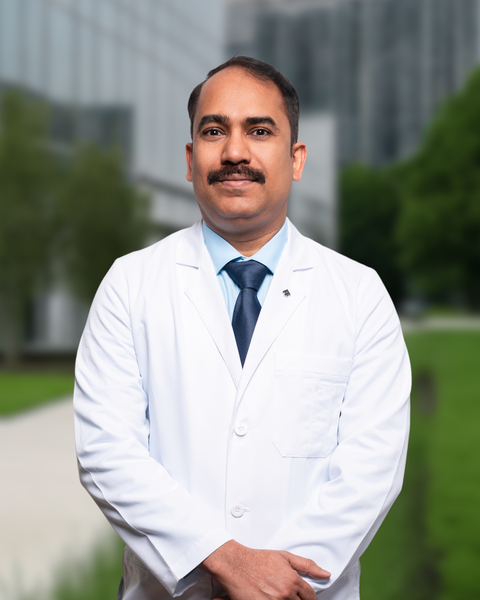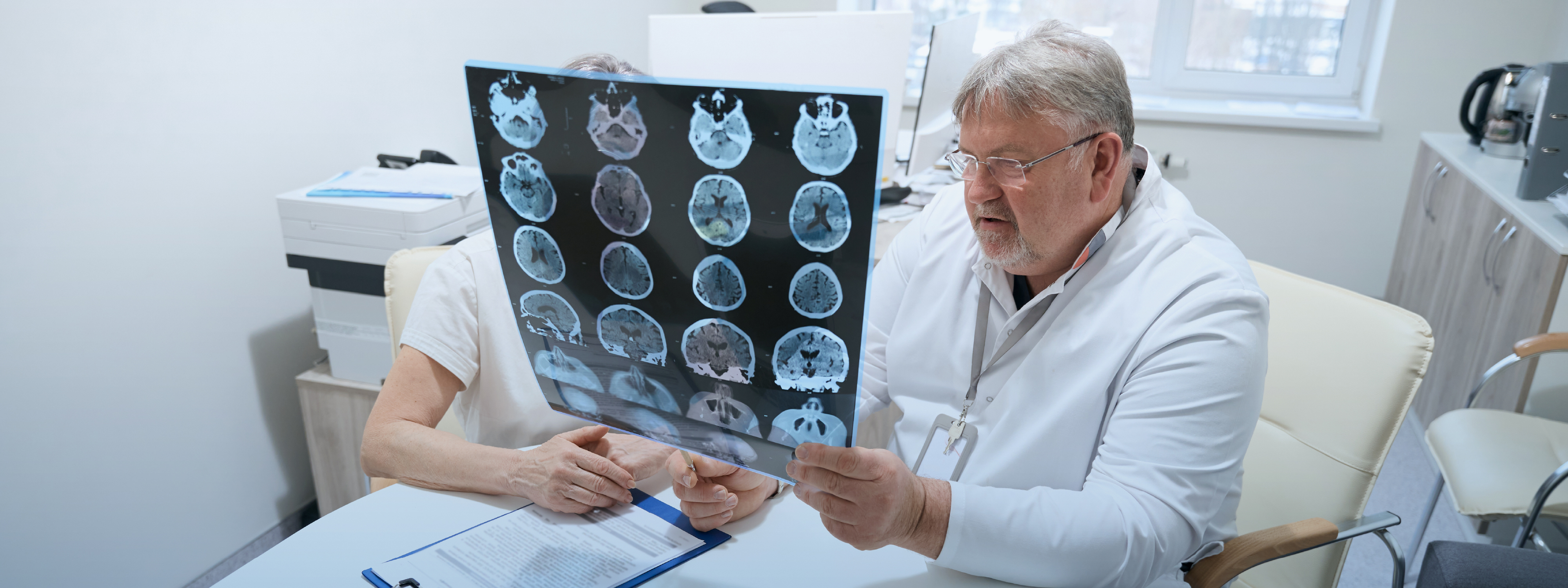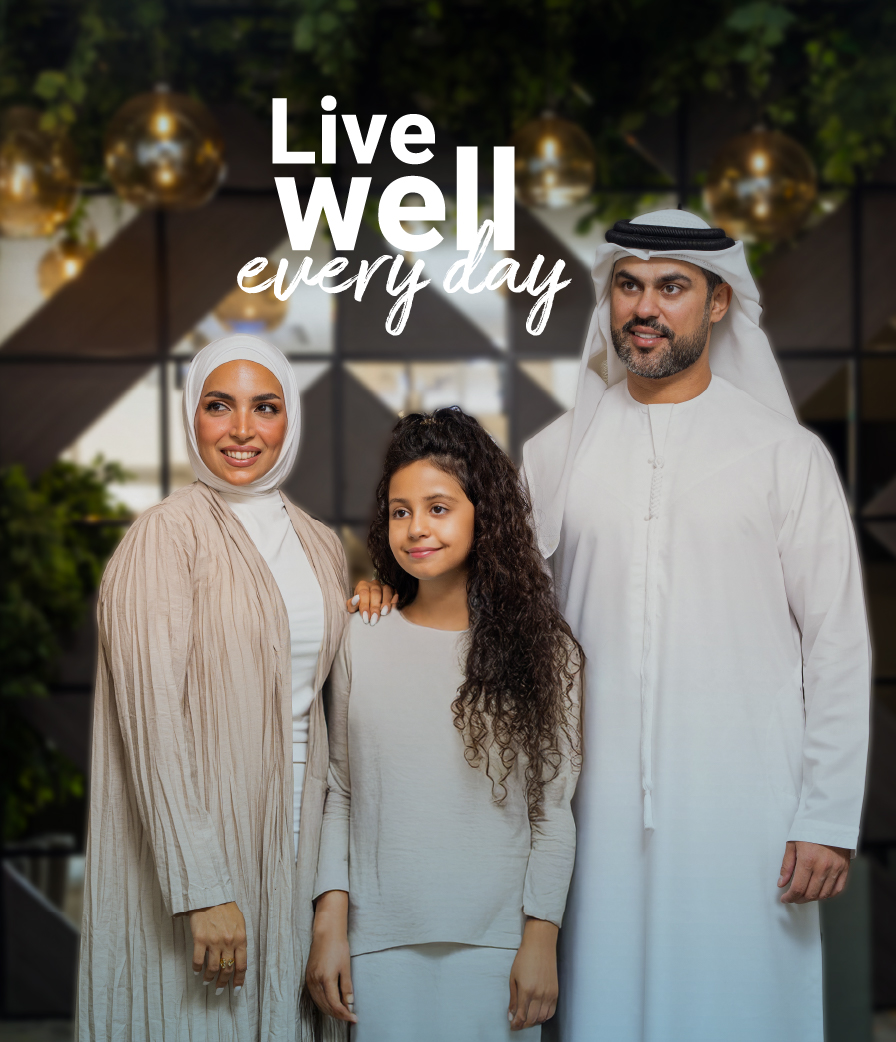 10+ years of exp
10+ years of exp
Languages
English, Malayalam, Hindi, Urdu, Tamil and Basic ArabicClinics
HealthHub - Al Qusais
HealthHub Day Surgery - Festival City
Home › Comprehensive Stroke Evaluation

Stroke is one of the leading causes of serious disability, but with early detection and proper care, its impact can be significantly reduced. At HealthHub Clinics in Dubai, our Neurology department offers comprehensive stroke evaluation for both individuals at risk of stroke and those who have already experienced one. We combine cutting-edge diagnostics with a compassionate, multidisciplinary care approach to help patients prevent strokes when possible and recover optimally if a stroke has occurred. In the UAE, it’s estimated that one person suffers a stroke every hour, and nearly 50% of stroke patients are under the age of 45 – highlighting the importance of timely evaluation, prevention, and follow-up care for everyone, not just the elderly.
Important: Stroke is a medical emergency. If you or someone around you shows signs of a stroke, call 999 immediatelyfor emergency help. (HealthHub Clinics does not offer immediate thrombolysis – the clot-busting emergency treatment – as we focus on evaluation, prevention, and post-stroke care. Emergency stroke treatment is handled at hospitals with acute stroke units
A stroke occurs when blood flow to a part of the brain is interrupted or reduced, depriving brain tissue of oxygen and nutrients. Within minutes, brain cells begin to die. Strokes can happen suddenly and have life-altering consequences. Understanding the causes, types, and warning signs of stroke is crucial for early detection and prevention.
Signs and Symptoms of Stroke
Recognizing stroke symptoms early can save lives and improve recovery. Stroke symptoms usually come on suddenly. Common signs include:
Remember the acronym FAST for stroke warning signs: Face drooping, Arm weakness, Speech difficulties, Time to call emergency. If you notice even one or two of these signs, act fast and seek immediate medical care. Early treatment is critical to improve outcomes.
Key Risk Factors for Stroke
Understanding your risk factors can help you take action before a stroke happens. While a stroke can affect anyone, certain factors greatly increase the risk:
Many of these risk factors are modifiable – meaning you can change them. At HealthHub, our team works on managing these risks (through medication, lifestyle changes, and monitoring) as part of our stroke evaluation program. Early detection of issues like high blood pressure or carotid artery narrowing can literally be life-saving.
If you have risk factors or a family history of stroke – or simply want peace of mind – HealthHub’s preventive stroke evaluation can help assess your risk and catch problems early. Our neurologists in Dubai take a thorough, proactive approach to evaluate individuals who may be at risk of a stroke:
By investing a little time in a stroke risk evaluation, you are taking a big step toward safeguarding your brain health. Early detection of issues and aggressive risk factor management can prevent a devastating event down the road. Our team is here to guide you every step of the way, with personalized care and encouragement to help you stay stroke-free.
For patients who have suffered a stroke, HealthHub Clinics provides comprehensive post-stroke evaluation and follow-up care to support your recovery and help prevent further strokes. We understand that surviving a stroke is only the beginning of the journey – what comes next is crucial for reclaiming quality of life. Our multidisciplinary team(neurologists, rehabilitation specialists, and other healthcare professionals) works together to tailor a plan for each stroke survivor’s needs.
Thorough Post-Stroke Evaluation: After you’ve been treated for an acute stroke at a hospital, it’s important to identify the underlying cause and any effects of the stroke. In follow-up visits at HealthHub, our neurologist will perform detailed evaluations including:
Individualized Rehabilitation Plan: Recovery after a stroke often requires rehabilitation to regain lost skills and adapt to any limitations. At HealthHub, we emphasize a holistic rehabilitation approach:
Regular Follow-Up and Support: Post-stroke care at HealthHub is an ongoing partnership. We schedule regular follow-up appointments to monitor your blood pressure and other vitals, check lab results, and adjust your care plan over time. Preventing another stroke is a top priority – so we ensure that all the preventive measures (medications, lifestyle adjustments, etc.) are working effectively and that you understand the warning signs of any new problems. Our clinic provides a supportive environment where you can ask questions and get guidance on managing life after stroke, whether it’s advice on diet, activity, or coping with changes.
By combining medical management with rehabilitation and compassionate support, our goal is to maximize your recovery and help you return to an active life. Many stroke survivors can recover capabilities over time with the right therapy and health management. HealthHub’s post-stroke program in Dubai is here to guide you through that journey, from hospital discharge and into the months and years of recovery ahead.


A stroke evaluation at HealthHub Clinics is a thorough assessment that includes a detailed consultation and neurological exam with our specialist, checks of vital signs (especially blood pressure), and any necessary diagnostic tests such as blood tests, brain scans (CT/MRI), carotid Doppler ultrasound of the neck arteries, and possibly an EEG if indicated. The evaluation looks at your overall risk factors for stroke and checks for any signs of past silent strokes or vascular issues. Based on the findings, we provide you with a personalized prevention or treatment plan.
Anyone with significant stroke risk factors or concerns should consider an evaluation. This includes people over age 50, those with high blood pressure, diabetes, high cholesterol, smokers, individuals with a family history of stroke, or those who have had a TIA (mini-stroke) or unexplained neurological symptoms in the past. Even if you feel healthy but have risk factors, a preventive stroke assessment can be very beneficial. It’s about being proactive – catching and managing risks early before a stroke can occur.
While HealthHub Clinics is an outpatient setting, we work closely with rehabilitation specialists and centers in Dubai to support your recovery. After assessing your post-stroke needs, we can refer you to trusted
(some of our clinics may have physiotherapy departments, or we connect with specialized rehab centers). We monitor your progress through follow-up visits and adjust your care plan (for example, managing spasticity with medications or providing mobility aids if needed). Our team ensures that all aspects of your rehabilitation – physical, speech, cognitive, and emotional – are addressed by the appropriate professionals. We act as the central hub for your post-stroke care, coordinating between different therapists and doctors. Our goal is to help you achieve the best possible recovery by providing ongoing medical oversight, encouragement, and guidance for both you and your family.
 10+ years of exp
10+ years of exp
HealthHub - Al Qusais
HealthHub Day Surgery - Festival City